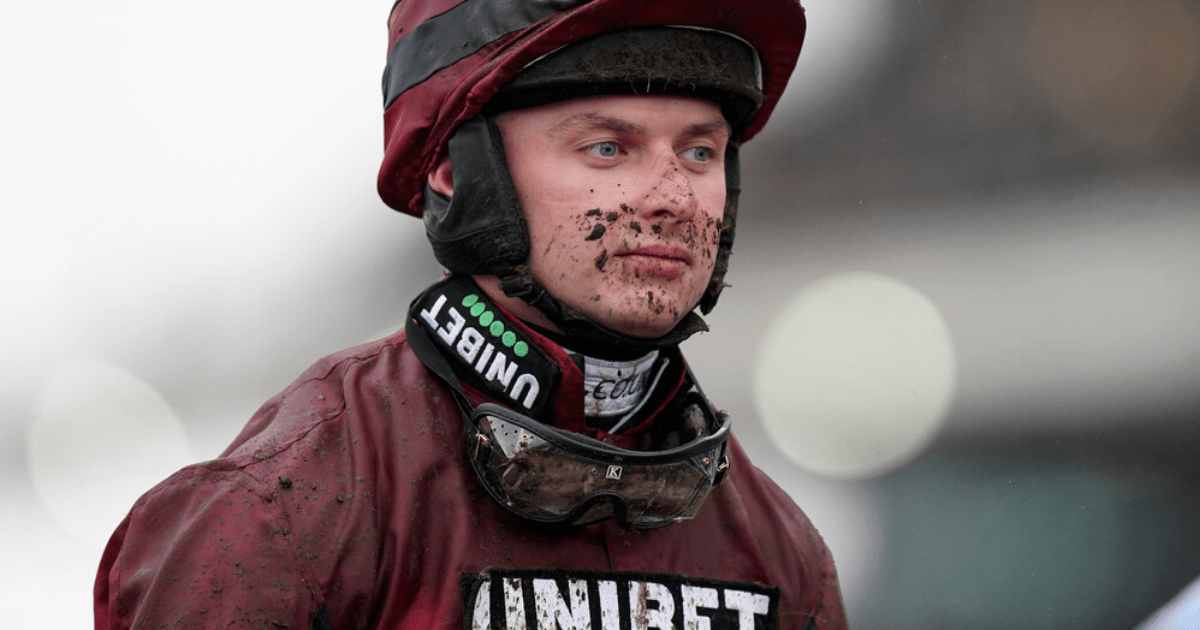Sean Bowen, the leading jockey in the championship race, is anxiously awaiting the results of scans on his knee injury next week, hoping to get the green light to make his return to racing. Bowen has been sidelined since Boxing Day after suffering ligament damage in a fall at Aintree. Prior to his injury, Bowen held a 30-winner advantage over his closest rival, Harry Cobden, but that lead has now been reduced to 20. Cobden, the stable jockey for Paul Nicholls, has been steadily closing the gap and has a strong book of rides in upcoming races.
Setback in the standings
Bowen's injury came at an unfortunate time, as he was on track to win the Grade 1 Formby Hurdle on Gordon Elliott's Farren Glory before the fall. The tumble resulted in a more severe injury than expected, causing Bowen to miss several races. Cobden, on the other hand, has been taking advantage of the cancelled or postponed races due to weather conditions, allowing him to gain ground in the championship race.
Crucial scans and a potential comeback
While Bowen initially hoped for a quick return after his fall, the extent of his injury required specialist treatment at the Injured Jockeys' Fund's facility. The British Horseracing Authority's Dr. Jerry Hill has scheduled scans for Bowen next week, and if the results are positive, he will be given the go-ahead to resume riding. Bowen is optimistic about his recovery and is eager to get back in the saddle.
A tight race to the finish
Bookmakers predict a close competition between Bowen and Cobden for the championship title. Bowen is currently the favorite at odds of 4/6, while Cobden is not far behind at 11/10. Both jockeys are vying for their first-ever title, adding an extra layer of excitement to the race.
Frequently Asked Questions
How critical is the horse’s pedigree in racing success?
Pedigree is a good indicator of potential but it’s not the only factor that determines a horse’s performance. The lineage of a horse may indicate an inherited ability for speed or endurance. However, training, health and temperament can also be influential factors. A horse’s natural ability can be maximized by good training, and it may even outperform horses with impressive pedigrees.
What health precautions are necessary when training a racehorse?
Meticulous attention to a racehorse’s health is vital in preventing injury and illness. Regular veterinary check-ups, vaccinations, dental care, and proper hoof management are essential. Monitoring the horse’s signs of fatigue, discomfort or strain is equally important. It is important to implement a carefully planned training regime that allows a gradual progression in intensity. This will minimize the risk for musculoskeletal problems.
How can I maintain the mental well-being of my racehorse?
Mental health is just as vital to a horse’s performance as physical conditioning. Mental stimulation, gentle handling, and regular pasture turnout all contribute to the psychological well-being of a racehorse. Ensuring the horse has social interaction with other horses and providing a calm, stable environment helps to prevent stress and behavioral issues.
Can you ride a racehorse in any place?
Although initial training can be done on any track, race-specific training is often required in facilities that mimic the conditions the horse may face during competition. This can include tracks of the right size with the exact same type and surface that the horse will race upon. It is important to use the right track in order to condition the horse correctly and familiarize them with the particular racing environment.
What are the different methods of race training for different horse breeds and types?
Race training methods can indeed vary for different horse breeds, as breed characteristics and racing distances differ. Thoroughbreds are often associated with flat-track racing over long distances. They receive different training than Quarter Horses who specialize in sprinting. Each breed needs a unique approach that is tailored to their physical and behavior traits.
When can a horse be expected to start racing training?
Horses may begin their basic training as yearlings but they will usually begin more rigorous racing training and conditioning at around two years. This is when their bodies are mature enough to handle the stresses of the track while still being young and adaptable for the learning process. The exact timing can vary depending on each horse’s temperament and development.
Statistics
- Approximately 70% of a racehorse’s diet consists of forage, with the remainder made up of grains and supplements to meet their high-calorie needs.
- The average cost to train a thoroughbred racehorse for one year can exceed $50,000, accounting for expenses related to training, boarding, and veterinary care.
- The majority of racehorses in training are subject to an exercise regimen that includes being ridden six days a week.
- Statistically, less than 1% of thoroughbred foals born each year will go on to win a stakes race.
- The average racehorse reaches its peak physical ability between the ages of four to five, with some variation based on the breed and individual development.
- An extensive survey indicated that over 90% of racehorse trainers utilize swimming as a low-impact exercise in their conditioning routines.
External Links
grayson-jockeyclub.org
keeneland.com
horseracing.com
racingpost.com
jockeyclub.com
thoroughbred-racing.net
How To
How To Select Race-Specific Tack for Your Horse
When outfitting your racehorse, choose lightweight, durable tack to improve performance without weighing the animal down. Racing saddles are designed to provide minimal weight and interference, allowing for maximum speed. Choose racing bridles which are strong and slim, allowing you to maintain control without adding unnecessary bulk. To improve traction and increase speed, choose racing plates over traditional horseshoes. Make sure your tack fits correctly to avoid injuries and ensure comfort when racing or training.
Did you miss our previous article…
https://www.sportingexcitement.com/horse-racing/golf-superstars-brooks-koepka-and-graeme-mcdowell-could-attend-cheltenham-festival-with-their-wonderhorse/

